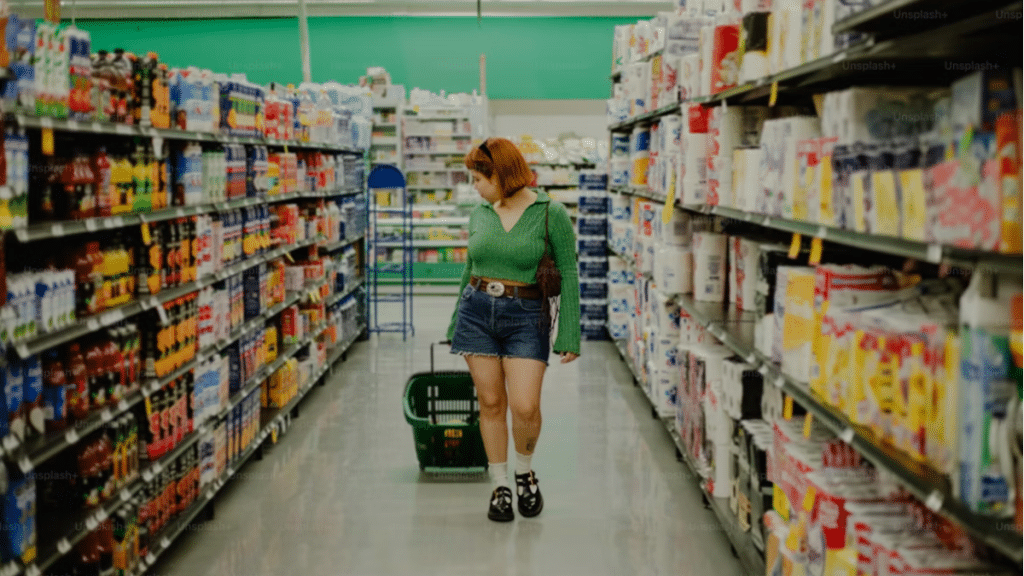Leading autonomous checkout companies are transforming traditional retail landscapes with their unique technology. From eliminating long queues to ensuring better hygiene, they have changed shoppers’ in-store experience with convenience, speed, security, and personalization.
If you’re wondering how, let’s know more about it here.
1. No More Queues
In traditional setups, the checkout counters create a bottleneck. Often, customers in line discard their carts, and some don’t even enter the store, seeing the crowd.
The primary advantage of autonomous checkout technology is that it eliminates the most frustrating aspect of traditional retail stores: checkout lines.
In a store with autonomous checkout solutions, customers can walk in and start shopping for their favorite items straight away. The autonomous system, equipped with smart shelves, high-resolution cameras, and computer vision, bills them to their account directly when they step out. This way, they don’t have to wait in line for their goods to be scanned before paying for the items.
2. Improved Hygiene
In traditional stores, customers have to touch multiple surfaces, including checkout desks, payment terminals, and POS systems, during payments. They have to queue up for checkout, which increases the chances of contracting contagious diseases, such as cold, influenza, and COVID-19.
This doesn’t happen with autonomous checkout technology. People only need to touch the products they need and walk out. No multiple touches; no crowd. Payments are completely contactless, allowing customers to shop in peace.
3. Enhanced Customer Service
With autonomous checkout systems, stores don’t need physical checkout counters. This eliminates the need for checkout staff. They can simply reinstate existing staff in more crucial areas, such as hygiene maintenance, customer service, and shelf restocking.
This ensures customers get the best experience every time they visit. Statistics report that 73% of consumers love brands with a proactive, helpful, and friendly customer service. Thus, it will enhance customer loyalty and drive sales.
4. Minimal Human Interference
In a traditional store with a large staff, some customers feel judged when purchasing certain goods, such as feminine hygiene products, sexual health products, or food products.
Contrarily, a store equipped with autonomous checkout technology requires minimal staff. Even from the viewpoint of safety, autonomous checkout provides a significant edge over traditional stores. The entire premises are monitored using high-resolution cameras. There’s no opportunity for theft as people will be billed for everything they take with them.
Apart from this, customers grab everything they need and leave without queuing, which ensures minimal crowds and human interference.
5. 24/7 Operations
Modern customers don’t follow strict schedules. Most are too busy and have no time to visit stores at conventional hours.
However, traditional stores usually open at 9 AM and close around 8 PM. Operating them throughout the day, on weekends, or on holidays incurs additional charges. Even if that’s done, employee retention and shift management remain a challenge.
On the other hand, stores with autonomous checkout aren’t dependent on human staff. They can keep stores open 24/7, without extra hires. Their all-day accessibility makes them a favorite for people with unconventional routines.
Additionally, since they don’t require people to carry cash or cards, shopping becomes safe even at night.
6. Real-Time Inventory Management
For any retail store, inventory management is a critical operation that is highly susceptible to manual errors, which often lead to drastic differences between actual and calculated numbers.
To prevent inventory discrepancies, modern retail stores are using autonomous checkout systems equipped with shelf sensor technologies to monitor the inventory continuously. The sensors update the inventory as soon as a customer picks up an item, leaving no space for miscalculations.
7. No Security Confrontation
In traditional stores, security checks the bags and compares them with the bills, which is an intrusive process. Larger stores are often integrated with security alarms to detect unpaid goods, but this is not feasible for businesses on a budget.
With autonomous technology, these procedures will become obsolete. The technology will accurately bill every customer, ensuring theft prevention.
Conclusion
Autonomous checkout companies know precisely how to meet consumer expectations.
They enhance the in-store shopping experience with digital features, ensuring any store stands out from its competitors. So, embrace their technology today and set yourself up for success!
